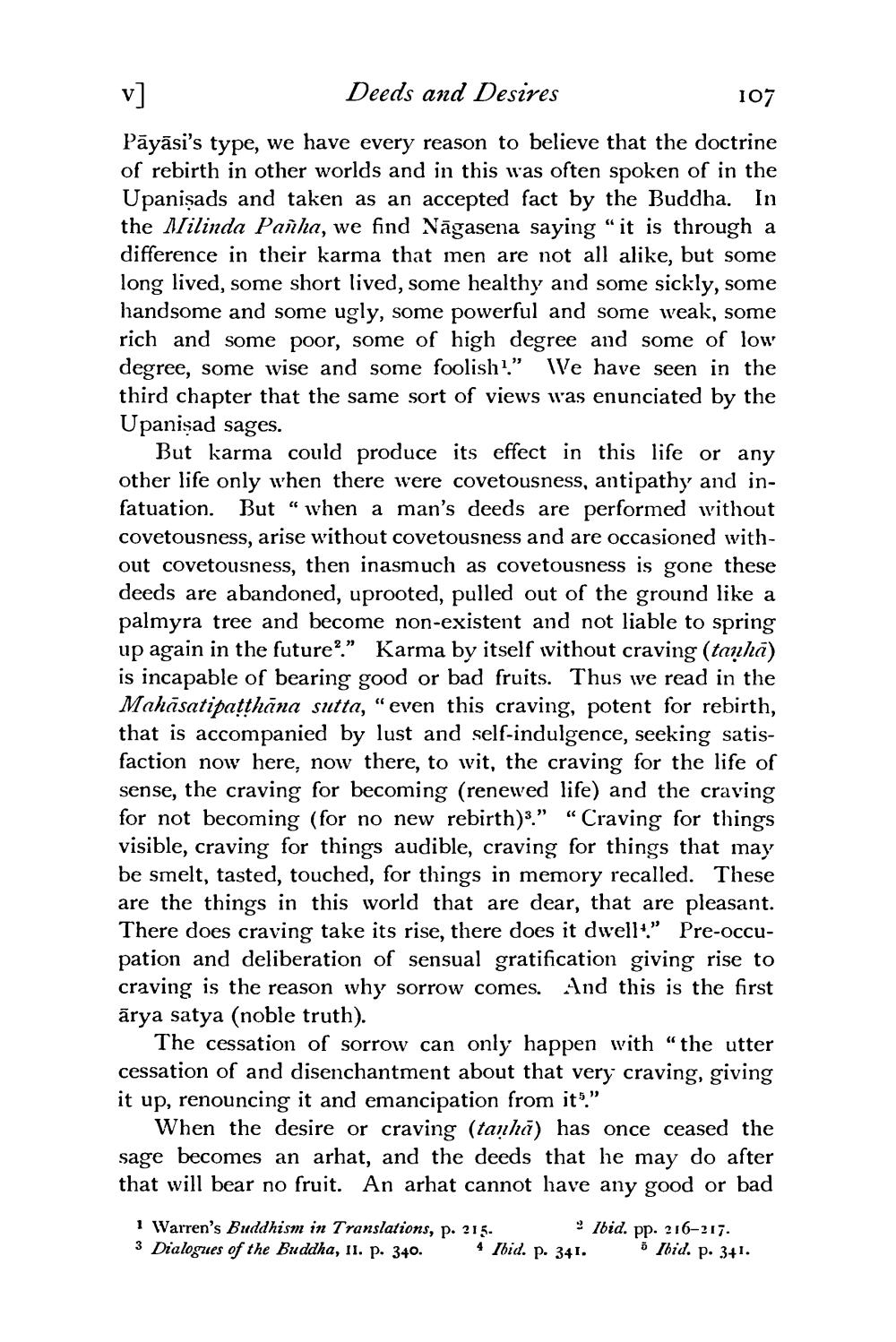________________
v]
Deeds and Desires
107
Pāyāsi's type, we have every reason to believe that the doctrine of rebirth in other worlds and in this was often spoken of in the Upanisads and taken as an accepted fact by the Buddha. In the Milinda Panha, we find Nagasena saying "it is through a difference in their karma that men are not all alike, but some long lived, some short lived, some healthy and some sickly, some handsome and some ugly, some powerful and some weak, some rich and some poor, some of high degree and some of low degree, some wise and some foolish1." We have seen in the third chapter that the same sort of views was enunciated by the Upanisad sages.
But karma could produce its effect in this life or any other life only when there were covetousness, antipathy and infatuation. But when a man's deeds are performed without covetousness, arise without covetousness and are occasioned without covetousness, then inasmuch as covetousness is gone these deeds are abandoned, uprooted, pulled out of the ground like a palmyra tree and become non-existent and not liable to spring up again in the future?." Karma by itself without craving (taṇhā) is incapable of bearing good or bad fruits. Thus we read in the Mahasatipaṭṭhāna sutta, "even this craving, potent for rebirth, that is accompanied by lust and self-indulgence, seeking satisfaction now here, now there, to wit, the craving for the life of sense, the craving for becoming (renewed life) and the craving for not becoming (for no new rebirth)3." "Craving for things visible, craving for things audible, craving for things that may be smelt, tasted, touched, for things in memory recalled. These are the things in this world that are dear, that are pleasant. There does craving take its rise, there does it dwell." Pre-occupation and deliberation of sensual gratification giving rise to craving is the reason why sorrow comes. And this is the first arya satya (noble truth).
The cessation of sorrow can only happen with "the utter cessation of and disenchantment about that very craving, giving it up, renouncing it and emancipation from it"."
When the desire or craving (tanha) has once ceased the sage becomes an arhat, and the deeds that he may do after that will bear no fruit. An arhat cannot have any good or bad
2 Ibid. pp. 216-217. 4 Ibid. p. 341.
5 Ibid. p. 341.
1 Warren's Buddhism in Translations, p. 215. 3 Dialogues of the Buddha, II. p. 340.




